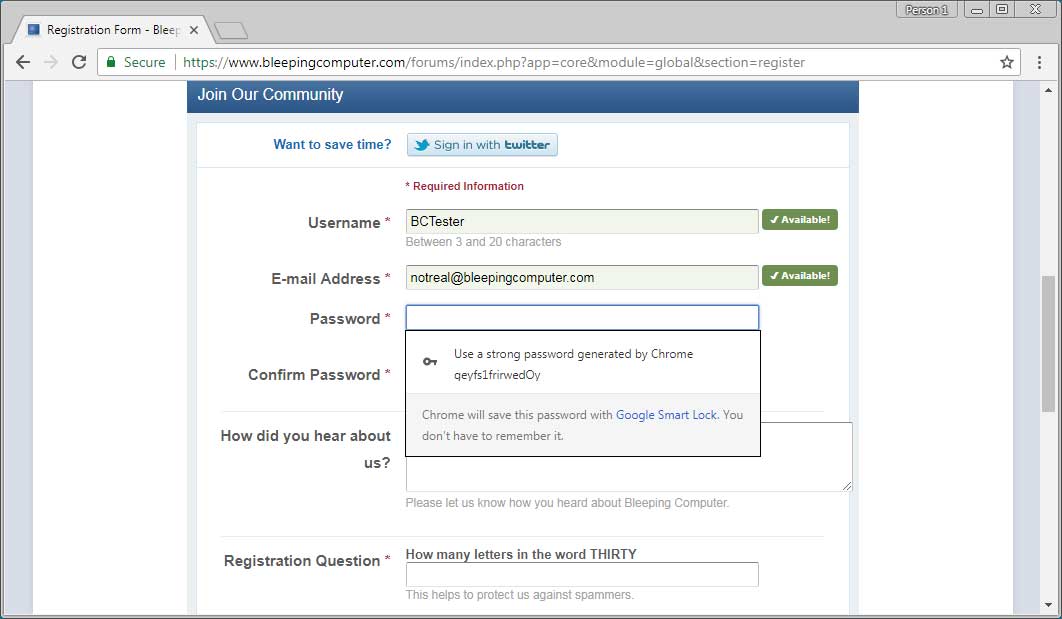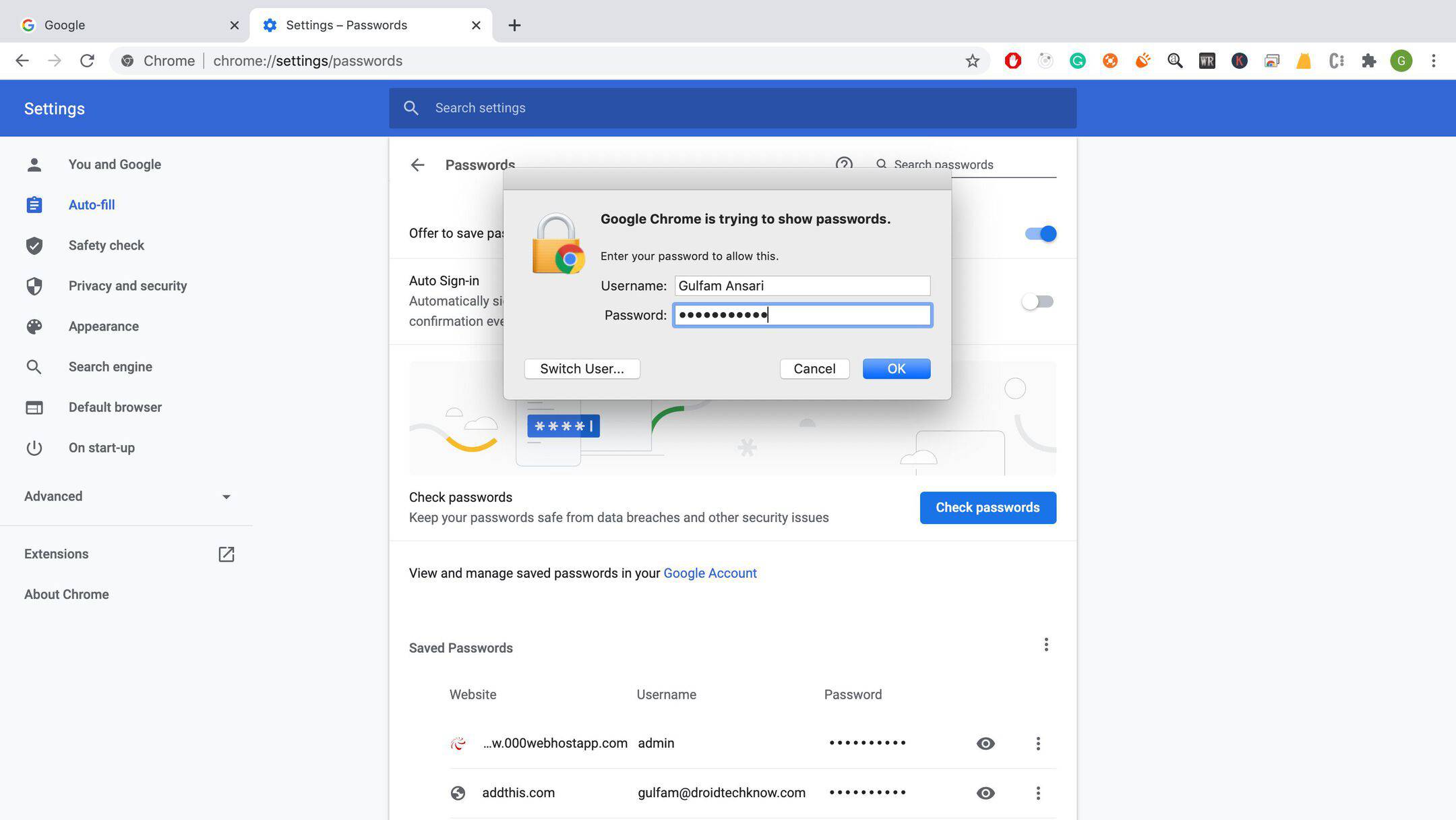

- #GOOGLE CHROME PASSWORDS HOW TO#
- #GOOGLE CHROME PASSWORDS ANDROID#
- #GOOGLE CHROME PASSWORDS PASSWORD#
- #GOOGLE CHROME PASSWORDS DOWNLOAD#
- #GOOGLE CHROME PASSWORDS FREE#
See how NordPass compares to browser password managers. It automatically saves and fills your passwords, works on multiple platforms and even offline, and is protected with one of the latest encryption algorithms.Ĭhoosing a reliable password manager is no easy task.
#GOOGLE CHROME PASSWORDS FREE#
The free version offers all the features of a trustworthy and easy-to-use password manager. Problems saving passwords can occur for several reasons: A function has been activated that prohibits saving local data.

It’s free, so why would I choose something else? NordPass is free too. Why passwords are not saved in the Google browser. The best part is that it offers to fill your passwords automatically on most popular browsers and mobile.
#GOOGLE CHROME PASSWORDS DOWNLOAD#
Just download the app, open it, and view your passwords. With NordPass, you can find your passwords on any device, at any time. However, you will have to dive deep into your settings to find them. Is it convenient? Chrome offers a mobile app, which allows you to view your saved passwords on the go. Your passwords are also encrypted on your device, meaning that no one, not even NordPass employees, can see them.

NordPass encrypts your data with one of the latest encryption algorithms, XChaCha20. Chrome is vague about the encryption it uses to protect your passwords. Is it secure? Most browser password managers have been built as add-ons, which means they may not have the strongest security. However, is it worth keeping your passwords in a browser, or should you choose a third-party password manager, like NordPass? It’s convenient if it’s your preferred browser, and it’s better than using the same password for all your accounts. Keeping your passwords in Chrome’s built-in password manager isn’t all bad. Is it worth keeping passwords in Google Chrome? You can find them under Chrome browser settings or in Google Password Manager. Accessing your saved passwords in ChromeĪs a Chrome user, you have a few different ways to access your saved passwords. Also, if you use other password managers, you may want to brush up your data for your own peace of mind. You may be surprised by the number of credentials saved there. Either way, have you ever checked or cleaned your passwords from your Chrome browser? If not, then it's about time. Or you save them on purpose as it’s very convenient. If you're like me, who never finds time to read browser popup messages, you may end up with quite a few saved passwords. Overall, it has everything a user may want in a browser. On top of this, Chrome offers built-in features, like a password manager, and many other useful extensions.
#GOOGLE CHROME PASSWORDS ANDROID#
Google’s reputation, browsing speed, friendly interface, and compatibility with Android are the dominant factors for many users. There are many different reasons why this browser is so popular.

#GOOGLE CHROME PASSWORDS HOW TO#
More details on how to use the extension can be found here. Google might not be aware of all leaked credentials, but in a database of 4 billion leaked credentials, there’s a reasonable chance that you might have been a victim. This will reduce the risk of personal and workplace leaks of confidential information. If you use the Google Chrome browser, you should install the Password Checkup extension as an extra security precaution. Hackers typically take advantage of this to take over accounts. That leaves a remainder of 65% of the sample who use the same password for some or all accounts - posing a security risk since one compromised account can make accounts to other websites vulnerable as well. This month, Google and Harris Poll released an online security survey of 3000 adults in the US and it showed that only 35% of the sample uses a different password for all their accounts. If there’s a match, Password Checkup will alert you to make changes immediately to prevent unauthorized access to accounts by third parties. All of these credentials are hashed using a cryptography technique called “blinding,” which allows Google to compare your credentials with the known stolen credentials without ever needing to actually view your information. Google currently has a database of over 4 billion credentials that were stolen during data breaches. Source: So How Does Password Checkup Work? Google provided an image on their blog to help you get set up with the extension: With the Password Checkup Chrome extension installed, you’ll receive an automatic notification if a username or password for any of your accounts were known to have been compromised during data leaks in the past. On Tuesday, January 5th, Google released a Chrome extension that will help users protect their accounts from risks from third party data breaches. Google is always on top of its game when it comes to making its user’s lives more secure.


 0 kommentar(er)
0 kommentar(er)
